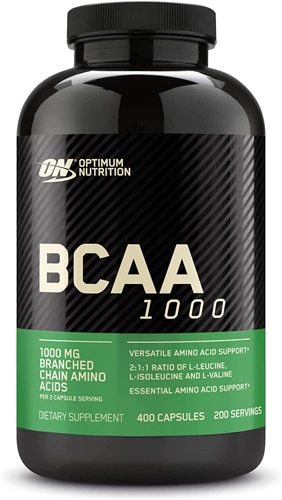Do you have a recovery plan? I didn’t think so. Regardless of whether you’re a weekend warrior or training for the Boston Marathon, recovery is an important component of any training program. Without rest, you risk getting injured, falling ill, becoming inconsistent with your workouts or overtraining and wanting to give up completely. Learn to read the signs that your body isn’t fully recovered, so you can implement the right strategies to bounce back faster and fitter than ever.
1. Your muscles are sore
Soreness is a sign of progress, so let that serve as a motivator to get back to the gym. That being said, delayed onset muscle soreness (DOMS) can hinder you from pushing hard when you do get back to work – and rightfully so. That sore feeling stems from inflammation, which technically means you’re at a slightly higher risk of injury. Don’t try any new exercises right now, and focus your energy on proper hydration and an antioxidant-rich diet.
Next time: Take glutamine after your toughest workouts. A raw, unflavored powder easily mixes into any shake or fruit juice, so you can quickly replenish and keep moving.
2. Your form is failing
Getting shaky after only a few reps? You’ve been hit by fatigue. In A Multidimensional Approach to Enhancing Recovery by the National Strength and Conditioning Association, fatigue has been defined as “any exercise induced reduction in the maximal capacity to generate force or muscle output.” If you’re not able to finish a training session or are struggling to keep good form, it’s time to quit while you’re ahead.
Next time: Fight the effects of muscle fatigue with branched-chain amino acids (BCAAs). These essential nutrients support protein synthesis, so your body can perform at its best. BCAAs can only be obtained through diet or supplements, making them ever-more important to your healthy-living routine.
3. Your quality of sleep has slipped
Fatigue could be categorized as metabolic, neural, psychological or emotional. That means, in addition to your strenuous workouts, you could be doubling or tripling your physical stress with factors outside of training. These compounding factors inevitably impact the quality and quantity of sleep you get each night. Whether it’s anxiety that keeps you up until the wee hours or leg cramps that make you toss and turn, a restful night just isn’t in the cards.
Next time: Try a natural sleep aid, like melatonin or a warm cup of tea, to help you relax from head to toe. If leg cramps or spasms are the main irritator, a soothing magnesium drink can support healthy muscle contraction for a more peaceful night.
Some research has suggested drinking casein protein before bed, so you get a slow-and-steady release of amino acids. Though not specifically useful for getting more sleep, casein could be helpful in promoting nitrogen balance – which is critical to the muscle-building process.
4. Your focus is spotty
Dazing off at work, mindlessly scrolling through Facebook, losing your keys multiple times in one week. These are all good indicators that it’s either a full moon, or your body is not fully recovered from the physical stress it’s had to bear. Likely, this type of brain fog is related to your diet – or lack thereof. Recovery is part physiological (putting up your feet and chillin’) and part nutritional (refueling with foods that support a healthy inflammatory response and balance oxidative stress on the body). You can’t expect to load your body with the stress of heavy exercise and then dive into a fast-food burger. You’ll expend a lot of energy digesting that kind of food, which steals energy from your brain.
Next time: Refuel with food that’s easy on the digestive system and packed with nutrients that support muscle recovery. Because they tend to be more alkaline and free of unnecessary ingredients (like gluten and artificial sweeteners), plant-based protein powders mixed with antioxidant-rich greens are a smart post-workout pick.
5. Your relationships are tense
When you’re too tired to function after an intense training week, daily house duties – like dealing with overflowing laundry and bathing the kiddos before bed – go by the wayside. More realistically, they end up in the laps of your loved ones. It doesn’t take long for resentment to settle in. That kind of personal stress will weigh on you – emotionally and physically. It becomes a vicious cycle, all because you didn’t follow a recovery plan, which could’ve prevented your extreme fatigue from the get-go.
Next time: Take an entire day off, sleep in and spend quality time with your favorite loved ones. Your body will thank you. Most importantly, your family will appreciate the undivided attention that they very much deserve.




